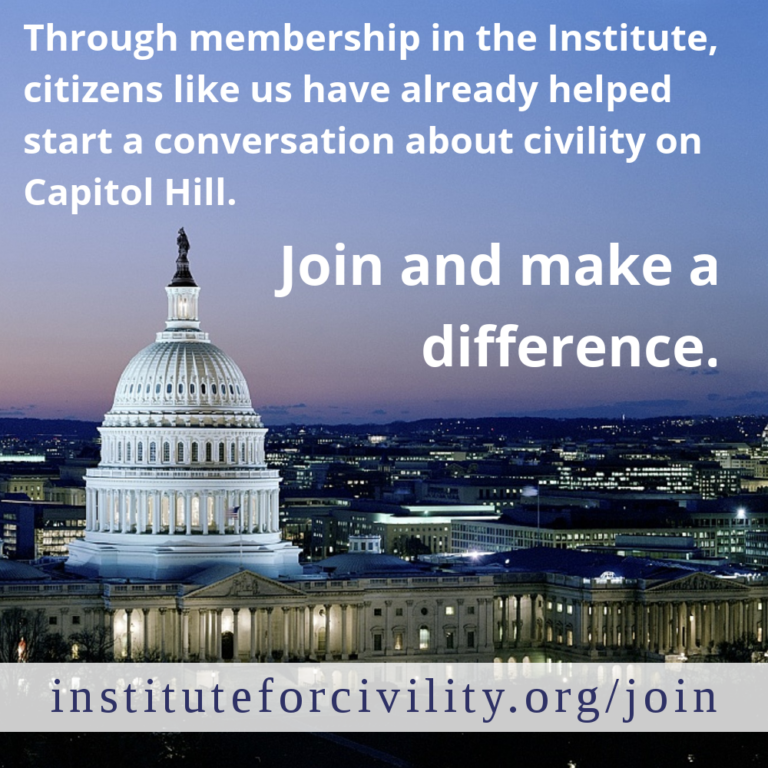Another fresh start….
Regardless of which political party wins, every inauguration brings with it new hope, new possibilities, and renewed calls for unity and civility, along with a dose of skepticism and displeasure from those among the losing party. The proportion of hope to skepticism and/or outright resentment may vary from administration to administration, but these are the realities of the dynamic that is ours in the United States.
While the calls for unity stretch back decades, the calls for civility have grown louder in the last twenty years or so. When the Institute was first launched in 1998, no one else was talking about civility at the grassroots level. It was not on anyone’s radar. There was little understanding, appreciation, or awareness of what a critical element it is to our lives in community or to the functioning of a healthy democracy. Many simply took for granted that civility would always be a prevalent value in our society.
As the years have gone by and civility has steadily eroded at all levels of society, concern has grown. Other organizations besides our own have popped up all over the country. From local initiatives to national ones, people have sought to prop up this failing element and renew its application virtually everywhere – from homes, to schools, businesses, sports, government and beyond.
Even as the calls for civility have grown louder, so has the pushback to those calls. Many arguments and discussions have played out in person, in meetings, and in editorials and articles about whether “civility” is really important or even good for a healthy democracy, with many claiming that it is merely a tool to promote political correctness while quelling free speech.
Sharing a common understanding of exactly what civility means seems a good place to start in addressing at least some of these frictions. The Institute defines civility as “claiming and caring for one’s identity, needs, and beliefs without degrading someone else’s in the process.” That may sound deceptively simple. It allows for respect of differences and appreciation for diversity. And when differences of opinion occur, it takes hard work.
The events of January 6th in this country and the necessity of massive security on January 20th sharply illustrate that the peaceful transfer of power, once a trusted hallmark of this country, cannot be taken for granted. If civility is valued as anything, it must be seen as less a weapon for restricting freedom of speech, and more as an essential tool to keep our government, our society, and our lives in community running as smoothly as possible. Without it, the very freedoms we all cherish are in jeopardy.
We’ve got a lot going on in this country and around the world. There are a lot of problems to be addressed. Let’s do what we can to do it together – civilly.

